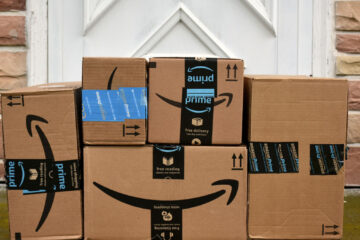Parenting comes with a high price tag.
Babies not only need round-the-clock care, but they also have to eat multiple times a day. Parents have to pay for everything from childcare to formula, baby food, diapers, and clothes for their child.
Related: Kroger raises the red flag on prices (it’s not just eggs)
Adults can make substitutions to deal with higher prices. If eggs are expensive, they can opt to eat something else for breakfast. If steak is out of the reach of their budget, they can opt for ground beef.
It’s harder to do that with babies. Yes, you have some choices when it comes to childcare, and if you’re lucky, you have family that can help. But when it comes to staples like food, clothes, and diapers, there’s only so much you can do.
That makes the current situation, where looming tariffs could force prices for pretty much everything, deeply concerning for parents.
💵💰Don’t miss the move: Subscribe to TheStreet’s free daily newsletter 💰💵
“Unless diapers are excluded from the tariffs, prices can increase even if you use a brand that makes its diapers in the U.S. That’s because manufacturing equipment, packaging, and materials may all be imported,” David Warrick, executive vice president at Overhaul, a supply-chain risk management company, told Baby Center.
“Even for products made in the U.S., there’s no guarantee of price stability. Diapers rely on imported plastics and absorbent materials,” he added.
Many parents remember the formula shortage of 2022.
Image source: Getty Images
Amazon buyers change shopping habits
The Covid pandemic showed Americans that product shortages are possible. People had gotten used to the idea that they could always buy whatever they wanted at the supermarket.
Prior to the pandemic, you generally could. Even if an item was out of stock in one store, it was available online or right down the road.
That changed in 2021 when stores ran out of toilet paper, hand sanitizer, paper towels, and other essential items. That was followed by a national shortage of baby formula in 2022.
These widespread shortages, even though they happened for very unique reasons, changed the American mindset. People lost faith that everything they needed would be at the grocery store when they got there.
More Retail:
Walmart CEO sounds alarm on a big problem for customersTarget makes a change that might scare Walmart, CostcoTop investor takes firm stance on troubled retail brand
That led to people hoarding toilet paper and other essentials. It was an ugly situation that has left some lasting scars. Now, with President Donald Trump’s tariffs looming over pretty much every product, there have been some noticeable changes in buying habits, according to data from Momentum Commerce.
“Across Amazon’s top 1,000 products, average selling prices fell 0.8% year-over-year, reversing the platform’s pricing trend for the year to date. The diaper category saw a similar dynamic,” according to the data.
Parents are trading down on diapers, opting for cloth
The selling price for diapers hasn’t dropped because prices are falling. Consumers are actually trading down.
“It shows that consumers are reaching for slightly lower-priced items, while entrenched players are still increasing prices. That’s going to be a challenge, especially in categories like diapers with big, established brands,” Andrew Waber, director of market research at Momentum Commerce, told Modern Retail.
Diapers are an $8.2 billion industry where the people who buy them have limited choices. Procter & Gamble, which makes the Pampers brand, and Kimberly-Clark, which owns Huggies, account for over half the U.S. diaper market.
There are house brands, and in some cases, parents could opt for reusable diapers. Cloth diapers have been a growing market.
“The cloth diaper market size in the U.S. is projected to grow significantly, reaching an estimated value of USD 930.28 million by 2032, driven by the rising number of single-parent households and their spending on infant care products,” according to data from Fortune Business Insights.
Related: T-Mobile COO shares where the company can ‘do better’
The Momentum Commerce data also shows that parents have been hoarding certain items in advance of the return of tariffs.
“Sales of baby formula jumped by a staggering 26x week-over-week,” it shared.


